Stakeholders in Property Development: Managing Relationships for Success in New Zealand
 By
Trent Bradley
·
10 minute read
By
Trent Bradley
·
10 minute read

Property development in New Zealand involves a complex network of stakeholders, each with distinct roles, interests, and influence over project outcomes. Understanding these relationships and managing them effectively is crucial for development success. This comprehensive guide explores the key stakeholders in New Zealand property development and provides strategies for building positive, productive relationships that support project objectives.
Table of Contents
- Primary Development Stakeholders
- Regulatory and Government Stakeholders
- Market and Commercial Stakeholders
- Community and Social Stakeholders
- Managing Stakeholder Relationships Effectively
- Regional Variations in Stakeholder Dynamics
- Stakeholder Relationship Challenges and Solutions
- Technology and Stakeholder Engagement
- Building Long-Term Stakeholder Capital
- Stakeholder Management and Development Finance
- Stakeholder Success Strategies
- Frequently Asked Questions
Key Takeaways
- Property development stakeholders include developers, finance providers, professional teams, contractors, legal advisors, council authorities, community groups, iwi/hapū, and end users—each requiring tailored relationship management
- Local council planners, engineers, and building officials control resource consents and building permits essential for development—professional engagement and quality applications build credibility expediting future approvals
- Community stakeholder management through early neighbour consultation, design consideration, and construction management helps prevent opposition and builds support for consent applications
- Iwi and hapū engagement requires respectful partnership approaches recognizing cultural, spiritual, and commercial interests in development sites, particularly those with historical or environmental significance
- Stakeholder mapping and analysis identifies interests, influence levels, and potential project impacts—guiding relationship management priorities and resource allocation throughout development phases
- Auckland involves complex stakeholder networks requiring formal processes and professional intermediaries, while provincial centers rely more on personal relationships and informal communication channels
- Technology platforms including online portals, virtual consultation methods, and project management systems enable efficient stakeholder information sharing and broader participation in consultation processes
- Professional reputation through quality project delivery, fair dealing, and consistent professional behavior builds industry credibility facilitating future project approvals, professional relationships, and funding access
Primary Development Stakeholders
The core stakeholders directly involved in development projects have the greatest influence over project success and require the most intensive relationship management.
Developers and Development Partners: The development team includes project sponsors, equity partners, and sometimes joint venture partners who share project ownership and returns. Managing internal stakeholder relationships requires clear agreements, regular communication, and aligned objectives throughout the development process.
Development Finance Providers: Banks, private lenders, and specialist development financiers provide crucial funding throughout development phases. These relationships require transparent communication, regular reporting, and professional project management to maintain confidence and support throughout extended development periods.
Professional Service Teams: Architects, planners, engineers, surveyors, and project managers provide essential expertise throughout development. Managing professional relationships requires clear briefings, appropriate budgets, realistic timelines, and regular coordination to ensure integrated service delivery.
Construction Contractors: Builders, subcontractors, and suppliers transform designs into physical developments. Contractor relationships require careful selection processes, clear contracts, fair payment practices, and collaborative problem-solving approaches to deliver quality outcomes within budget and timeline constraints.
Legal and Advisory Teams: Solicitors, accountants, tax advisors, and specialist consultants provide crucial expertise for complex regulatory, financial, and commercial aspects of development. These relationships require early engagement, clear scope definition, and ongoing coordination throughout development phases.
Regulatory and Government Stakeholders
New Zealand's complex regulatory environment involves multiple government agencies and officials whose decisions significantly impact development feasibility and success.
Local Council Authorities: Council planners, engineers, building officials, and elected representatives control resource consents, building permits, and infrastructure approvals essential for development. Building positive council relationships requires professional engagement, quality applications, responsive communication, and constructive problem-solving approaches.
Central Government Agencies: Kāinga Ora, Ministry for the Environment, Heritage New Zealand, and other central agencies may influence development through policy settings, funding programs, or specific project requirements. Understanding agency priorities and maintaining professional relationships can provide access to opportunities and support.
Infrastructure Providers: Council-owned and private utility companies including water, electricity, telecommunications, and gas providers must approve and often upgrade services for developments. Early engagement and cooperative planning help ensure adequate infrastructure capacity and reasonable connection costs.
Transport Agencies: Waka Kotahi (NZTA), regional transport authorities, and local roading teams influence development through transport planning, traffic requirements, and infrastructure provision. Understanding transport planning priorities helps align development proposals with regional objectives.
Environmental Agencies: Regional councils, Department of Conservation, and environmental monitoring agencies may have jurisdiction over environmental aspects of development including water quality, ecological protection, and heritage preservation.
Market and Commercial Stakeholders
Commercial stakeholders include parties involved in development marketing, sales, and ongoing property management whose success directly impacts development returns.
Real Estate Professionals: Sales agents, marketing specialists, and property managers play crucial roles in achieving development sales and ongoing property performance. These relationships require performance-based agreements, regular communication, and aligned incentive structures.
End Users and Purchasers: Ultimate buyers or tenants represent the final success measure for development projects. Understanding end user needs and maintaining positive relationships through quality delivery and responsive service builds reputation and referral opportunities.
Financial Institutions: Banks and mortgage providers serving end purchasers influence sales success through lending policies and approval processes. Maintaining positive relationships with retail lenders helps facilitate purchaser finance and settlement processes.
Insurance Providers: Professional indemnity, construction, and development insurance providers protect against various project risks. Maintaining positive insurance relationships through professional practices and proactive risk management helps ensure appropriate coverage at reasonable costs.
Property Valuers: Independent valuers assess development progress for lending purposes and provide market opinion for feasibility analysis. Building relationships with experienced, qualified valuers helps ensure realistic project assessments and smooth finance processes.
Community and Social Stakeholders
Community relationships often determine development approval success and long-term project acceptance within established neighbourhoods.
Immediate Neighbours: Adjacent property owners are directly affected by development activities and often have rights to object to consent applications. Proactive neighbour engagement through early consultation, design consideration, and construction management helps prevent opposition and build support.
Community Groups: Residents associations, environmental groups, and community organisations may have interests in development outcomes. Understanding community priorities and engaging constructively can prevent opposition while identifying opportunities for positive community contribution.
Iwi and Hapū: Māori communities may have cultural, spiritual, or commercial interests in development sites, particularly those with historical significance or environmental sensitivity. Respectful engagement and genuine partnership approaches can provide valuable cultural input while satisfying regulatory requirements.
Local Businesses: Existing businesses may be affected by development activities through construction disruption or market competition. Considering business impacts and maintaining positive relationships helps prevent opposition while potentially creating future commercial relationships.
Future Residents: People who will live in or near completed developments have long-term interests in development quality and community outcomes. Designing developments that contribute positively to neighbourhood character and amenity builds long-term community acceptance and project success.
Managing Stakeholder Relationships Effectively
Successful stakeholder management requires systematic approaches that recognise different stakeholder priorities and communication preferences.
Stakeholder Mapping and Analysis: Identify all relevant stakeholders early in development planning and analyse their interests, influence levels, and potential impact on project success. This analysis guides relationship management priorities and resource allocation throughout development.
Communication Strategy Development: Develop tailored communication strategies for different stakeholder groups considering their information needs, preferred communication channels, and decision-making processes. Regular, transparent communication prevents misunderstandings and builds trust.
Early Engagement Approaches: Engage key stakeholders early in development planning before positions become entrenched. Early engagement allows stakeholder input to influence development design and demonstrates respect for community interests and concerns.
Relationship Maintenance Systems: Implement systematic relationship maintenance including regular updates, progress reports, and proactive issue management. Consistent relationship attention prevents small issues from becoming major problems.
Conflict Resolution Strategies: Develop strategies for managing stakeholder conflicts including mediation approaches, compromise solutions, and professional dispute resolution. Effective conflict management protects project progress while maintaining important relationships.
Regional Variations in Stakeholder Dynamics
Stakeholder dynamics vary significantly across New Zealand's different regions, requiring tailored relationship management approaches.
Auckland Stakeholder Environment: New Zealand's largest city involves complex stakeholder networks including multiple council departments, diverse community groups, and sophisticated professional markets. Auckland relationships often require formal processes and professional intermediaries.
Wellington Region Dynamics: The capital region involves central government proximity, heritage considerations, and earthquake risk factors that influence stakeholder priorities. Professional relationships and technical expertise often carry significant weight in Wellington stakeholder management.
Provincial Centre Relationships: Smaller cities and towns often involve more personal relationships and informal communication channels. Local knowledge, community involvement, and long-term relationship commitment prove particularly valuable in provincial markets.
Rural Community Engagement: Rural development often involves tight-knit communities where reputation and family relationships significantly influence project acceptance. Respectful engagement and genuine community contribution prove essential for rural development success.
Stakeholder Relationship Challenges and Solutions
Common stakeholder relationship challenges require proactive management and adaptive approaches throughout development processes.
Competing Interests: Different stakeholders often have conflicting objectives requiring careful balance and compromise. Successful developers identify win-win solutions that address multiple stakeholder concerns while maintaining project viability.
Communication Overload: Large developments can involve dozens of stakeholders with varying information needs. Efficient communication systems and targeted messaging help manage information flow without overwhelming any party.
Expectation Management: Stakeholders often have unrealistic expectations about development outcomes, timelines, or benefits. Clear communication about project scope, constraints, and realistic outcomes prevents disappointment and maintains positive relationships.
Power Imbalances: Some stakeholders wield significant influence over project approval or success while others have limited power despite being significantly affected. Fair engagement processes and genuine consideration of all stakeholder interests help manage power imbalances constructively.
Cultural and Social Sensitivities: New Zealand's multicultural society and bicultural foundation require sensitive engagement approaches that respect different cultural perspectives and communication styles.
Technology and Stakeholder Engagement
Modern technology provides new opportunities for effective stakeholder engagement and relationship management.
Digital Communication Platforms: Online portals, project websites, and social media channels enable efficient information sharing and stakeholder updates throughout development processes. Digital platforms can improve engagement reach while reducing communication costs.
Virtual Consultation Methods: Video conferencing, online surveys, and virtual reality presentations enable broader stakeholder participation in consultation processes, particularly valuable during pandemic restrictions or for geographically dispersed stakeholders.
Project Management Systems: Cloud-based project management platforms enable real-time information sharing with professional stakeholders while maintaining appropriate confidentiality and access controls.
Community Engagement Apps: Specialist community engagement applications can facilitate feedback collection, consultation processes, and ongoing community communication throughout development phases.
Building Long-Term Stakeholder Capital
Successful developers focus on building long-term stakeholder capital that provides ongoing benefits across multiple projects and development cycles.
Professional Reputation: Consistently professional behaviour, quality project delivery, and fair dealing builds industry reputation that facilitates future project approvals, professional relationships, and funding access.
Community Contribution: Developers who contribute positively to communities through quality design, local employment, and community facilities build social capital that supports future development activities.
Regulatory Credibility: Maintaining positive relationships with regulatory authorities through professional applications, responsive communication, and regulatory compliance builds credibility that expedites future consent processes.
Industry Leadership: Contributing to industry development through professional associations, mentoring, and knowledge sharing builds networks and reputation that provide ongoing business opportunities.
Stakeholder Management and Development Finance
Development finance providers understand that effective stakeholder management directly impacts project success and investment security.
At Luminate Finance, we recognise that stakeholder relationship management represents a critical success factor for property development projects. Our experience across diverse development types and market conditions provides valuable insight into stakeholder dynamics and effective relationship management strategies.
We work closely with developers to understand their stakeholder environments and provide guidance on relationship management approaches that support project success. Our extensive network of professional relationships across New Zealand's development industry often provides additional stakeholder connections and support for our clients' projects.
Our comprehensive approach to development finance includes consideration of stakeholder risks and relationship management requirements in funding decisions and ongoing project support. We understand that developments with strong stakeholder relationships typically experience smoother approval processes, fewer construction delays, and better market acceptance.
Through our involvement in numerous development projects, we've observed that developers who invest in stakeholder relationship management consistently achieve better project outcomes, lower risk profiles, and enhanced long-term success in New Zealand's competitive development market.
Stakeholder Success Strategies
Implementing systematic stakeholder management approaches significantly improves development success prospects while building valuable long-term relationships and reputation.
Systematic Planning: Develop comprehensive stakeholder management plans early in project planning that identify all relevant parties, analyse their interests and influence, and establish appropriate engagement strategies for each stakeholder group.
Professional Communication: Invest in professional communication including quality materials, clear messaging, and appropriate channels for different stakeholder groups. Professional communication demonstrates respect and competence while building confidence in project management.
Relationship Investment: Treat stakeholder relationships as valuable long-term investments rather than short-term project requirements. Relationship investment provides ongoing benefits across multiple projects and development cycles.
Adaptive Management: Monitor stakeholder relationships continuously and adapt management approaches as project circumstances and stakeholder positions evolve throughout development processes.
Performance Measurement: Implement systems to measure stakeholder relationship effectiveness and project outcomes, using this information to improve relationship management approaches for future developments.
Frequently Asked Questions
How early should I start engaging with stakeholders on my development project?
Begin stakeholder engagement during initial feasibility and site selection—before purchasing land or committing financially. Early engagement with council planners through pre-application meetings identifies consent pathways, potential issues, and regulatory requirements before investment. Approach immediate neighbors and community groups during design development to incorporate feedback when changes are still affordable, not after lodging formal applications when modifications are expensive. Engage iwi/hapū early if your site has cultural significance—genuine partnership from project inception demonstrates respect and often uncovers valuable cultural perspectives improving design. Contact infrastructure providers during feasibility to confirm service capacity and connection costs affecting project viability. Early professional team engagement (architects, engineers, planners) ensures integrated design development. Rule of thumb: engage stakeholders when their input can meaningfully influence decisions, not after positions are locked in requiring costly compromises or opposition management.
What's the best way to handle community opposition to my development?
Prevention through early proactive engagement beats opposition management—consult neighbors and community groups before formal applications when you can incorporate legitimate concerns into design. Listen genuinely to objections identifying underlying issues (privacy, traffic, character) rather than dismissing concerns. Distinguish between resolvable technical issues and fundamental opposition—address technical concerns through design modifications, landscaping, construction management, or legal agreements. For fundamental opposition, focus on demonstrating compliance with planning rules and broader community benefits rather than achieving universal support. Professional planning representation helps navigate opposition through hearings if necessary. Document all consultation efforts showing good faith engagement attempts. Sometimes opposition reflects poor previous developer experiences—differentiate yourself through professionalism and genuine community consideration. Accept that some opposition is inevitable for developments challenging neighborhood character—focus on regulatory compliance and broader housing/community needs while minimizing legitimate impacts.
How do I maintain positive relationships with council planners and officials?
Professional application preparation demonstrates competence—submit complete applications with all required technical reports, clear documentation, and quality graphics rather than forcing councils to request additional information repeatedly. Respond promptly and comprehensively to information requests without defensiveness or delays. Use pre-application meetings effectively to understand council priorities and concerns before formal submission. Maintain realistic timeline expectations understanding councils face workload pressures and statutory processes—aggressive unrealistic demands damage relationships. Accept constructive feedback professionally viewing planners as partners navigating regulatory requirements rather than adversaries blocking development. Follow through on commitments made during consent processes and construction phases. Build long-term relationships through consistent professionalism across multiple projects rather than treating each application as isolated transaction. Engage experienced planning consultants who maintain positive council relationships and understand local nuances. Recognize that planners serve broader community interests, not just development interests—proposals aligning with policy objectives receive more supportive reception.
What are my obligations to iwi and how do I engage respectfully?
Obligations vary by location and site history—some areas have specific iwi consultation requirements through district plans, while culturally significant sites require engagement regardless of formal requirements. Start by identifying which iwi/hapū have mana whenua (territorial authority) over your development area through council planning departments. Make formal contact through appropriate channels requesting hui (meetings) to discuss your project. Approach engagement as partnership opportunity not regulatory burden—genuine respect and interest in cultural perspectives builds positive relationships. Allow adequate time for iwi consultation processes which may involve multiple hui and collective decision-making. Budget for cultural impact assessments if required and implement recommendations genuinely. Consider commissioning cultural monitoring during earthworks if appropriate. Recognize that iwi interests extend beyond archaeological sites to broader spiritual and environmental connections with land. Be prepared to modify designs accommodating cultural concerns where practical. Document all engagement efforts thoroughly. Poor iwi engagement can derail consents through objections, while genuine partnership often provides valuable cultural input improving projects and facilitating smoother approval.
How should I structure communication with different stakeholder groups?
Tailor communication approaches to each stakeholder group's needs and preferences. Finance providers require regular formal reporting (monthly written updates, quarterly meetings) with detailed financial data, progress photos, and variance explanations. Professional teams need weekly or bi-weekly coordination meetings with clear agendas, action items, and decision documentation. Contractors require daily/weekly on-site communication plus formal written variations and payment instructions. Council authorities expect prompt written responses to formal information requests and professional meeting attendance. Neighbors and community groups appreciate informal early consultation (coffee meetings, site visits) before formal written submissions. Iwi engagement often requires face-to-face hui with adequate notice and follow-up documentation. Develop project communications plan mapping stakeholder groups, information needs, communication frequency, preferred channels, and responsibility allocation. Use technology appropriately—project management software for professional teams, simple email updates for community groups, formal letters for regulatory authorities.
What should I do if stakeholder relationships break down mid-project?
Act quickly before relationship breakdowns derail projects—small issues escalate rapidly without intervention. Identify breakdown causes honestly: communication failures, unmet expectations, genuine conflicts of interest, or personality clashes. For professional relationship problems (contractors, consultants), document issues specifically, request formal meeting to address concerns, explore solutions collaboratively before resorting to contract termination or legal action. Replace non-performing professionals early rather than hoping for improvement—cost of change is lower mid-project than post-failure. For community relationship problems, consider engaging independent mediators or community liaison specialists to rebuild trust. For council relationship difficulties, escalate through appropriate channels (team leader, manager) while maintaining professionalism and seeking constructive resolution. For serious relationship failures threatening project success, engage legal advisors early to understand contractual positions and options. Prevention through clear initial agreements, regular communication, and early issue identification beats breakdown management. Learn from relationship failures to improve stakeholder management on future projects—pattern failures indicate systemic issues requiring changed approaches.
Ready to develop your property project with comprehensive stakeholder management support? Contact Luminate Finance today to discuss how our development finance expertise and extensive industry relationships can support your project success through effective stakeholder engagement and relationship management.

Trent Bradley
Trent Bradley is a New Zealand financial advisor specializing in property-backed finance and investment consulting. With over 26 years of experience running his mortgage broking business, he has helped wholesale investors access high-yield property-backed loan opportunities. For the past 12 years, Trent has led Luminate Finance, a New Zealand finance company dedicated to connecting investors with secure property investment solutions.






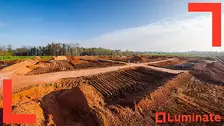



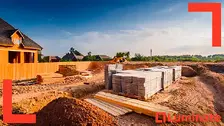
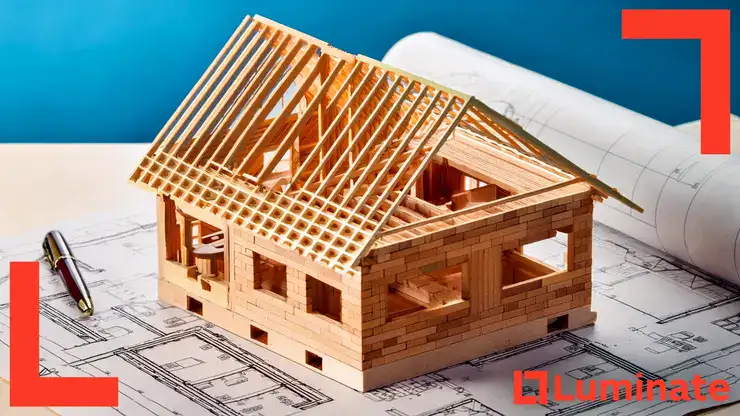







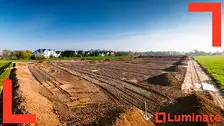








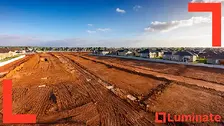
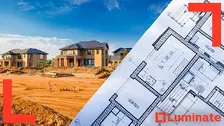
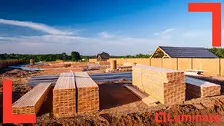


.png?//48413319.fs1.hubspotusercontent-ap1.net/hubfs/48413319/Featured%20images%20(14).png&width=247&height=126&name=Featured%20images%20(14).png)




